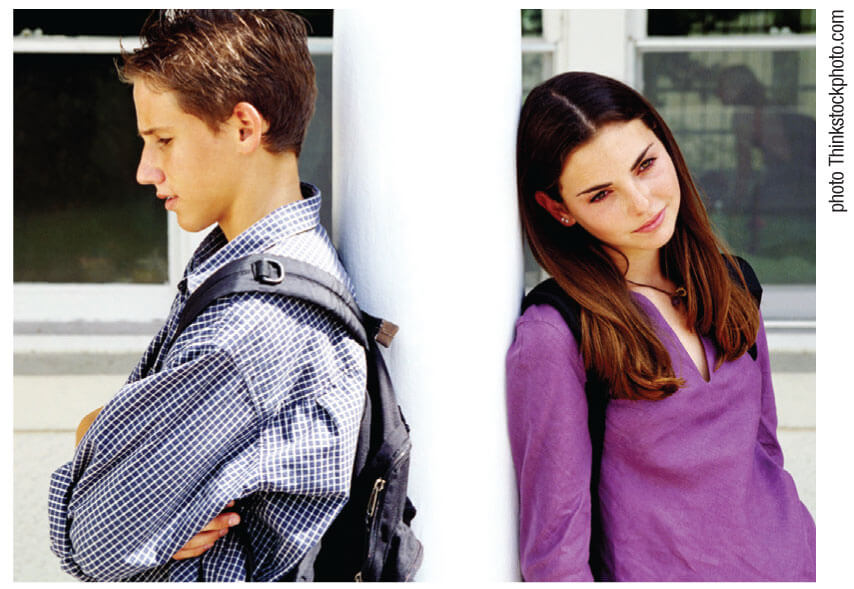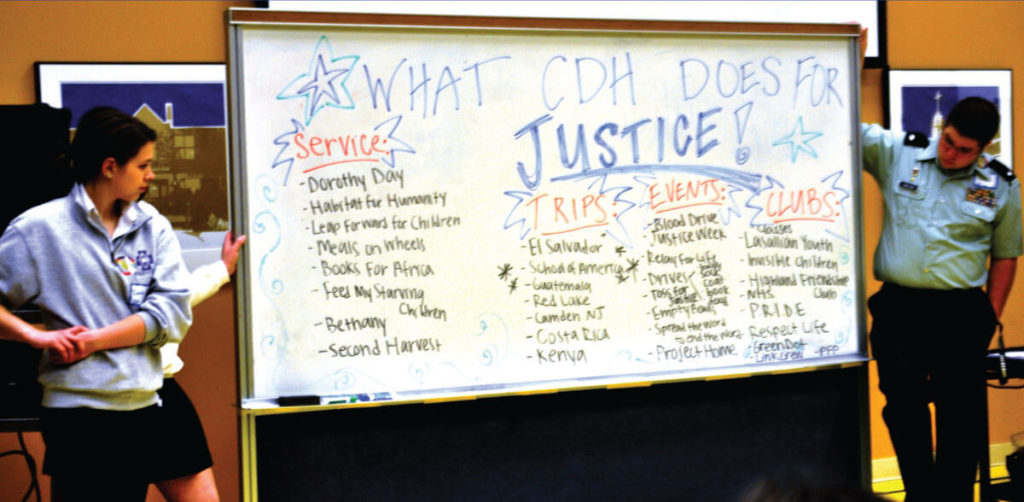All human life, whether individual or collective, shows itself to be a dramatic struggle between good and evil.
Guadium et Spes, #13
The Second Vatican Council describes our world as a place of struggle in which Christians can help good triumph over evil. No one knows when Jesus will come again. Until he comes, good and evil will struggle within us and in our world; for example, we can use the web to hurt and to help.
Sunday’s gospel claims and promises that what Jesus teaches will last. His words will sustain us no matter what, even if the heavens and earth pass away. We must watch events around us, interpret them, think, weigh our choices, seek counsel, act, and keep on throughout our lives struggling to discern what is good.
In our struggles Jesus is always at the door of our lives. A door has an inside and an outside. Its threshold is the place one steps across to enter or to exit. It is a place symbolizing choice and decision.
In Jesus’ time Christians wrote a kind of literature called apocalyptic to express their faith that good will triumph over evil. Apocalyptic writing is a scary way to give hope. The word apocalyptic means revelation.
The last book of the New Testament (named Revelation) is an apocalypse, a book revealing in symbols how good will prevail over evil, how Jesus will bring forth new heavens and a new earth.
Mark 13, from which Sunday’s gospel comes, is also an apocalypse. We read from this chapter at the beginning and end of the Church year. At the beginning it gives us a sneak preview of the ultimate meaning of Jesus’ death and resurrection. At the end it promises Jesus’ triumph over death is not just for himself but for all humankind.
At the Second Vatican Council the bishops of the world worked to read the sign of our times. In the Constitution on the Church in the Modern World, the bishops explain that the Church, the people of God, believe the Holy Spirit fills the whole world and leads us. “Impelled by that faith, the people of God try to discern the true signs of God’s presence and purpose in the events, the needs, and the desires which the Church shares with the rest of humanity today” (#11).
Catholics believe with the bible that all creation and human beings are good but we are also free, able to help and able to harm. We struggle to do what is right. The Church sees God’s law to love one another written in our hearts. The Second Vatican Council describes conscience.

“Deep within their consciences men and women discover a law which they have not laid upon themselves and which they must obey. Its voice, ever calling them to love and to do what is right and good and to avoid evil, tells them inwardly at the right moment: do this, shun that. Their dignity rests in observing this law, and by it they will be judged.
“Conscience is the most secret core and the sanctuary of the human person. There they are alone with God whose voice echoes in their depth” (#16).
Conscience is not about doing whatever one wants but about discerning what is right. The Church and our families teach us wisdom to help form our consciences.

To build enduring human families and communities, Jesus calls us to love one another and even our enemies, to regard every other human as our neighbor, to share our wealth, to reach out to neighbors and enemies, to share our goods, forgive, and worship God together. How are we doing by these standards?
We become who we are one choice at a time. Decisions become habits—virtues or hard-to-change vices. Do I cheat on this test? Do I have sex with my boy- or girlfriend to show my love? Do I drink at the party? Do I do the loving, truthful, faithful, forgiving thing? Do I give or do I take?
The evils around us in our society also live within us. Confronting evil always has a personal and social dimension—an inside and an outside. We live between Jesus’ first coming and his promised return. We make daily decisions at the door of faith.
